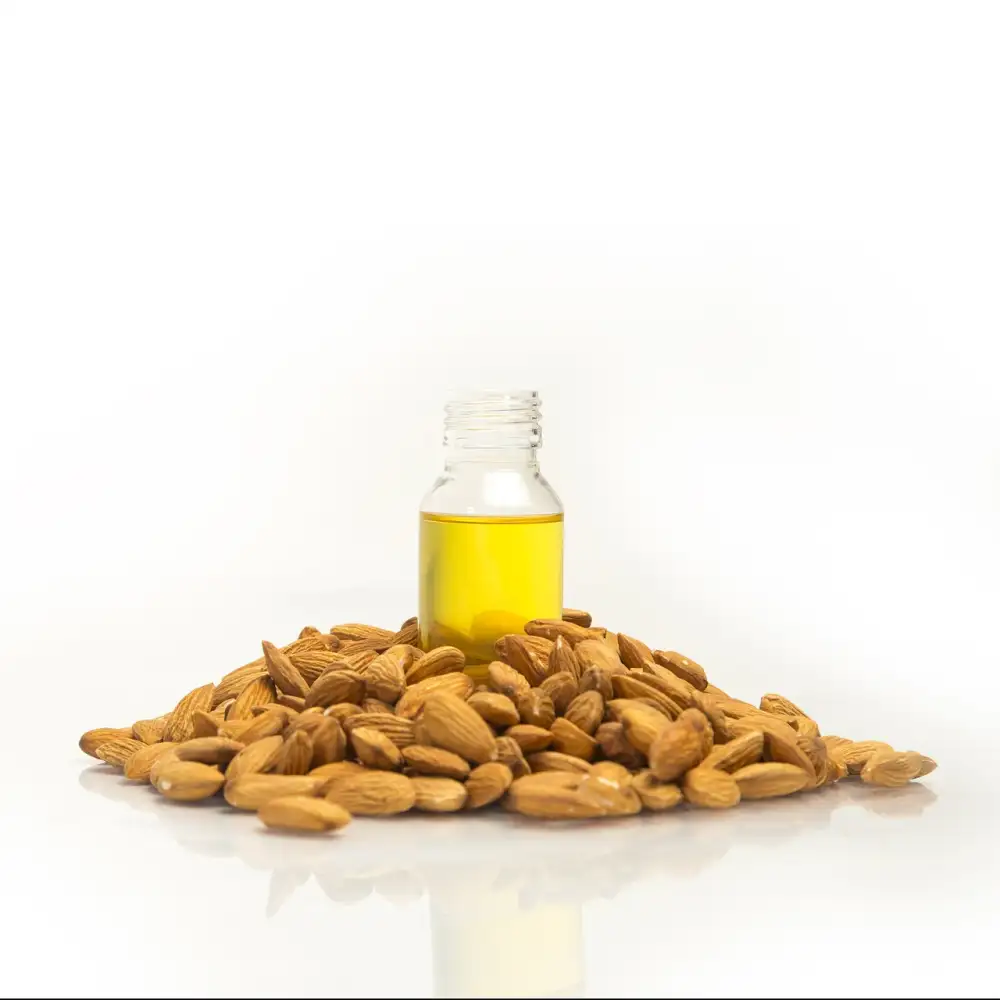Unlock the Nutritional Power of Seed Oils: A Guide to Health-Boosting Elixirs

- Nutritional Composition of Seed Oils
- Omega Fatty Acids in Seed Oils and Their Importance for Health
- Antioxidant Properties of Seed Oils and Their Role in Disease Prevention
- Seed Oils and Heart Health: Lowering Cholesterol and Blood Pressure
- Seed Oils and Brain Health: Enhancing Cognitive Function and Memory
- Seed Oils and Weight Management: Supporting Healthy Metabolism
- Seed Oils and Skin Health: Nourishing and Protecting the Skin
- Choosing and Incorporating Seed Oils into a Healthy Diet
Seed oils are a treasure trove of health benefits, offering a wide range of nutrients and compounds that can enhance our well-being. Derived from various seeds such as flaxseed, chia seed, pumpkin seed, and sunflower seed, these oils are packed with essential fatty acids, vitamins, minerals, and antioxidants. Incorporating seed oils into our diet can help improve heart health, boost brain function, support weight management, nourish the skin, and much more. Let's explore the incredible potential of these elixirs and unlock their nutritional power for a healthier life.
Nutritional Composition of Seed Oils
Seed oils are packed with essential nutrients that can provide numerous health benefits. They are rich in vitamins, minerals, and antioxidants, making them a valuable addition to any diet. The nutritional composition of seed oils varies depending on the type of seed used. However, most seed oils contain high levels of monounsaturated and polyunsaturated fats, which are considered healthy fats. These fats help to reduce bad cholesterol levels and promote heart health. Additionally, seed oils are a good source of omega-3 and omega-6 fatty acids, which play a crucial role in brain function and reducing inflammation in the body. They also contain vitamin E, an antioxidant that helps protect cells from damage caused by free radicals. With their impressive nutritional profile, incorporating seed oils into your diet can be an excellent way to boost your overall health and well-being.
Omega Fatty Acids in Seed Oils and Their Importance for Health
Omega fatty acids are essential fats that play a crucial role in maintaining overall health. Seed oils are a rich source of these beneficial fatty acids, including omega-3, omega-6, and omega-9. Omega-3 fatty acids have been shown to reduce inflammation, lower the risk of heart disease, and support brain health. Omega-6 fatty acids are important for growth and development, but excessive intake can lead to inflammation. Omega-9 fatty acids help improve insulin sensitivity and promote healthy cholesterol levels. Including seed oils in your diet can provide a balanced intake of these essential fatty acids and contribute to optimal health.
Antioxidant Properties of Seed Oils and Their Role in Disease Prevention
Seed oils are not only rich in essential fatty acids but also contain powerful antioxidants. These antioxidants play a crucial role in preventing and reducing the risk of various diseases. The high levels of antioxidants found in seed oils help to neutralize harmful free radicals in the body, which can cause oxidative stress and damage cells. By combating oxidative stress, seed oils can help prevent chronic diseases such as cancer, heart disease, and diabetes. Incorporating seed oils into your diet can provide you with a natural and effective way to boost your antioxidant intake and support overall health.
Seed Oils and Heart Health: Lowering Cholesterol and Blood Pressure
Seed oils have been shown to have a positive impact on heart health by lowering cholesterol and blood pressure levels. These oils are rich in monounsaturated and polyunsaturated fats, which are known to help reduce LDL (bad) cholesterol levels in the blood. By replacing saturated fats with seed oils in your diet, you can lower your risk of developing heart disease. Additionally, the omega-3 fatty acids found in certain seed oils, such as flaxseed oil, have been shown to have anti-inflammatory effects that can help improve cardiovascular health. Incorporating seed oils into your daily cooking and meal preparation can be a simple yet effective way to promote heart health.
Seed Oils and Brain Health: Enhancing Cognitive Function and Memory
Seed oils have been found to have a positive impact on brain health, specifically in enhancing cognitive function and memory. The omega-3 fatty acids present in seed oils, such as flaxseed oil and chia seed oil, play a crucial role in maintaining the health of brain cells and promoting optimal brain function. These fatty acids are essential for the formation and maintenance of cell membranes in the brain, which are responsible for transmitting signals between nerve cells. Additionally, seed oils contain antioxidants that help protect the brain from oxidative stress and inflammation, both of which can contribute to cognitive decline. Including seed oils in your diet can provide the necessary nutrients to support brain health and potentially improve memory and cognitive abilities.
Seed Oils and Weight Management: Supporting Healthy Metabolism
Seed oils play a vital role in supporting healthy metabolism and weight management. These oils are rich in essential fatty acids, such as omega-3 and omega-6, which help regulate metabolism and promote fat burning. Additionally, seed oils contain compounds that can suppress appetite and reduce cravings, making it easier to maintain a healthy weight. Incorporating seed oils into your diet can provide the necessary nutrients to support a balanced metabolism and aid in achieving your weight management goals.
Seed Oils and Skin Health: Nourishing and Protecting the Skin
Seed oils are not only beneficial for our internal health but also for our external well-being. When it comes to skin health, seed oils play a crucial role in nourishing and protecting the skin. These oils are rich in vitamins, minerals, and antioxidants that promote healthy skin.
The high concentration of essential fatty acids in seed oils helps to moisturize the skin and maintain its natural barrier function. This helps to prevent dryness, flakiness, and irritation. Seed oils also have anti-inflammatory properties that can soothe redness and inflammation caused by various skin conditions such as eczema or psoriasis.
Moreover, the antioxidants found in seed oils help to combat free radicals that can damage the skin cells and accelerate aging. They protect against environmental stressors like pollution and UV radiation, reducing the risk of premature wrinkles and age spots.
Different seed oils offer unique benefits for the skin. For example, argan oil is known for its hydrating properties, making it suitable for dry or mature skin. On the other hand, rosehip oil is rich in vitamin C which promotes collagen production and brightens the complexion.
To incorporate seed oils into your skincare routine, you can use them as a moisturizer by applying a few drops directly onto your face or body after cleansing. You can also mix them with your favorite lotions or creams for an extra boost of hydration.
In conclusion, seed oils are not only delicious additions to our diet but also powerful elixirs for our skin. By incorporating these nutrient-rich oils into our skincare routine, we can nourish and protect our skin from within while enjoying their numerous health benefits.
Choosing and Incorporating Seed Oils into a Healthy Diet
When it comes to choosing and incorporating seed oils into a healthy diet, there are a few factors to consider. First, opt for cold-pressed or expeller-pressed oils, as they retain more of their nutrients and flavors. Look for oils that are organic and non-GMO to ensure the highest quality. Experiment with different seed oils like flaxseed, hempseed, pumpkin seed, and chia seed oil to diversify your nutrient intake. Use them in salad dressings, drizzle over roasted vegetables, or add them to smoothies for a nutritional boost. Remember to store seed oils in a cool, dark place to preserve their freshness and potency. Enjoy the health benefits of these elixirs by incorporating them into your daily meals!
In conclusion, seed oils are a powerhouse of nutrition and offer numerous health benefits. From their omega fatty acids that support heart and brain health to their antioxidant properties that help prevent diseases, seed oils are truly elixirs for our well-being. Incorporating these oils into our diet can aid in weight management and promote healthy skin. With so many options available, it's important to choose high-quality seed oils and use them in moderation as part of a balanced diet. So unlock the nutritional power of seed oils and embrace their health-boosting benefits today!
Published: 08. 12. 2023
Category: Health



